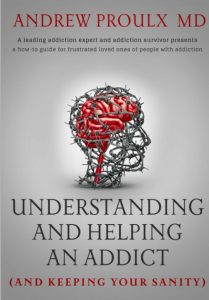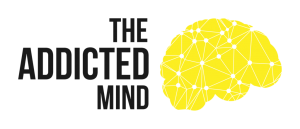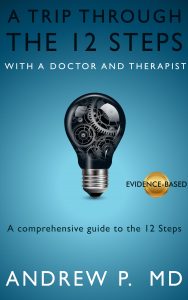A lot of formal research has gone into how our brain handles motivation and how we can improve our motivation. Here's what we've learned. We know that about 70% of our motivation levels are psychological -- how we think. The other 30% is biological (fatigue, instinct, etc.). Let's focus on the psychological part of our motivation, the biggest part. Scientists have identified how our brain's motivational system works, and five things we can do to super-charge it.
#1: Chunking.
Q: How do you eat an elephant? A: One bite at a time! "Chunking" is when we take a big task and break it down into bite-sized pieces. Chunking is a widely recognized technique for self-motivation. The U.S. Navy Seals use it as a mental technique to help them get through physically or mentally demanding situations. Rather than focus on the entire task ahead and getting overwhelmed, they break it down into bite-sized chunks that they can focus on one at a time. The Twelve Step program employs chunking very effectively with its focus on staying sober "one day at a time." Rather than be overwhelmed by the thought of having to stay clean and sober for months or years, they break down sobriety to bite-sized chunks - one day at a time. The Twelve Step program also uses the same concept for helping people cope with life when they are overwhelmed. Rather than focus on dealing with all their problems, they break it down to what they can do to help their problems today and stop worrying about the rest.#2: Confidence
The more confidence we have about our ability to accomplish a task, the more willpower we will have to accomplish it. If our mind doesn't believe a certain task is do-able, then it won't waste any motivation on the task. If I ask people who are actively using drugs or alcohol how confident they are that they can go a year without drugs or alcohol, they will probably be pretty iffy about it. However, if I ask them how confident they are that they stop drinking or using for one day and talk to someone about their problem that day, they are much more likely to be confident that they can do this. Their brain will assign willpower to the task they are confident they can achieve, but none to the goal they are iffy about. This is one of the reasons that chunking works: it gives us smaller goals that we can be confident about.XXXXXXXXXXXXXXXXXXXXXXXXXXXXXXXXXXXXXXXXXXXXXXXXXXXXXXXXXXXXXXXXXXXXXXXXXXXXXXXXXXXXXXXXXXXXXXXXXXXXXXXXXXXXXXXXXXXXXXXXXXXXXXXXXXXXXXXXXXXXXXXXXXXX
 Want to get the whole story?
See the author's book, for a guided tour through the brain changes, genetics, and psychology that cause addiction... and how to use this information to beat addiction.
This successful book enables addicts and alcoholics to understand why addictive substances hold such power over them, and it allows non-addicts to understand addiction and all the behaviors that go along with it. Loved ones, teachers, clergy, supervisors, healthcare professionals... anyone who encounters addiction will find this book an eye-opener.
The book is presented in everyday language with a sense of humor that makes it a fun read.
This important book is available in e-book and paperback versions, and for download of free samples at amazon.com Click Here
Want to get the whole story?
See the author's book, for a guided tour through the brain changes, genetics, and psychology that cause addiction... and how to use this information to beat addiction.
This successful book enables addicts and alcoholics to understand why addictive substances hold such power over them, and it allows non-addicts to understand addiction and all the behaviors that go along with it. Loved ones, teachers, clergy, supervisors, healthcare professionals... anyone who encounters addiction will find this book an eye-opener.
The book is presented in everyday language with a sense of humor that makes it a fun read.
This important book is available in e-book and paperback versions, and for download of free samples at amazon.com Click Here
XXXXXXXXXXXXXXXXXXXXXXXXXXXXXXXXXXXXXXXXXXXXXXXXXXXXXXXXXXXXXXXXXXXXXXXXXXXXXXXXXXXXXXXXXXXXXXXXXXXXXXXXXXXXXXXXXXXXXXXXXXXXXXXXXXXXXXXXXXXXXXXXXXXX





7 comments
ReliableonlinepharmacySeptember 1, 2018 at 3:15 am
I wish I had your willpower but frankly speaking, I don’t have a true scarcity to pummel into my lizard brain to stop me from spending as I wish The good news is I have your blog to keep me grounded and I do try and find other ways to stay occupied that don’t involve spending but that is touggggh.
adminSeptember 9, 2018 at 4:08 pm
Hi! Thanks for your message, it’s great to hear from you. I take it you have some compulsive spending habits. In most people it’s a coping mechanism for stress, because they get a “rush” from spending that temporarily provides an escape from stress and worries. In those cases learning some more healthy coping mechanisms takes away the brain’s drive to spend. Best of luck, and let me know if I can be of help.
Thanks again!
Andrew
buy cialisMarch 2, 2022 at 10:49 pm
certainly like your website however you have to check the spelling
on several of your posts. A number of them are rife with spelling issues and I in finding it very troublesome to inform the reality however I’ll surely come back again.
yupoo bagsMarch 14, 2022 at 11:48 pm
153101 141454Its not that I want to duplicate your web site, but I truly like the style. Could you tell me which design are you making use of? Or was it custom created? 594650
generic cialisMarch 21, 2022 at 2:38 am
I always used to study paragraph in news papers but now as I am a
user of net therefore from now I am using net for content, thanks to web.
script less automation toolsApril 9, 2022 at 7:56 am
723862 453704Wow, superb blog layout! How long have you been blogging for? you make blogging look easy. The overall appear of your website is magnificent, as nicely as the content material! xrumer 397259
beer777April 25, 2022 at 11:19 pm
816367 398384Thank you for your really good data and feedback from you. car dealers in san jose 734984